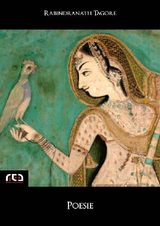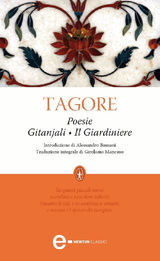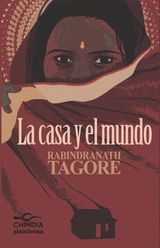
The Post Office
Por Rabindranath Tagore, Devabrata Mukherjee (Traductor)

| Descarga inmediata | |
Formato
ePubProtección
DRMIdioma
InglésAño Lanzamiento
2019Sinopsis
Rabindranath Tagore's play, "The Post Office," intricately weaves themes of isolation, hope, and the human spirit through the poignant tale of a young boy named Amal. Written in 1912, this literary gem employs a simple yet evocative style, characterized by lyrical dialogues and rich symbolism that reflect Tagore's deep connection to Indian culture and philosophy. Set against the backdrop of a rural village, Amal's yearning for freedom and connection encapsulates the universal human quest for belonging, depicted within the context of colonial India, where imperial dominance imposed severe limitations on individual liberty. Tagore, the first non-European Nobel laureate in Literature, drew upon his multifaceted experiences as a poet, educator, and social reformer to craft this theatrical masterpiece. His upbringing in a progressive Brahmo family, coupled with profound exposure to both Eastern and Western philosophies, influenced Tagore'Äôs exploration of the intersections between isolation and community, capturing the essence of human emotions with sensitivity and grace in "The Post Office." This enchanting play invites readers to reflect on their own lives while appreciating the delicate interplay between hope and despair. Recommended for those seeking a profound literary experience, "The Post Office" is not only a testament to Tagore's brilliance but also serves as a poignant reminder of the enduring power of human connection.
Devabrata Mukherjee

Rabindranath Tagore, (Calcuta, 7 de mayo de 1861 - Calcuta, 7 de agosto de 1941) fue un poeta bengalí, poeta filósofo del movimiento Brahmo Samaj (posteriormente convertido al hinduismo), artista, dramaturgo, músico, novelista y autor de canciones que fue premiado con el Premio Nobel de Literatura en 1913, convirtiéndose así en el primer laureado no europeo en obtener este reconocimiento.
Compatibilidad
El ebook The Post Office está en formato ePub y se encuentra protegido con Adobe DRM.
Puedes leer este eBook en los siguientes dispositivos:
- Para leer en tu PC o Mac descarga Adobe Digital Editions y autoriza el programa con una cuenta ID de Adobe
Pc/Mac
- Para leer en tu smartphone descarga Aldiko Next o PocketBook y autoriza tu equipo con tu Adobe ID.
Phone
- Para leer en tu tablet o iPad descarga Aldiko Next o PocketBook y autoriza tu equipo con tu Adobe ID.
Tablet
- Descarga el eBook en tu PC y transfiérelo a tu dispositivo favorito a través de Adobe Digital Editions.
eReader
- En una PC o MAC: Descarga el programa gratuito Adobe Digital Editions y autorízalo con una cuenta ID de Adobe.
- En un smartphone o tablet (iOS o Android): Descarga la app Aldiko Next o la app PocketBook.
- En un lector de libros electrónicos (eReader): Verifica que acepte ebooks con DRM de Adobe.
- Este eBook NO ES COMPATIBLE con Kindle.
Datos del libro
- Editorial:
- Good Press
- ISBN:
- 4057664143631
- Idioma:
- Inglés
- Tamaño:
- Kb
- Fecha de lanzamiento:
- Noviembre 20, 2019
- Protección:
- Adobe DRM
- Géneros:
Drama / General









![100 BOOKS YOU MUST READ BEFORE YOU DIE [VOLUME 2] (BOOK CENTER) 100 BOOKS YOU MUST READ BEFORE YOU DIE [VOLUME 2] (BOOK CENTER)](https://ik.imagekit.io/mvt24ohb0ne/tr:n-img_front/covers-5/9791097338916.jpg)
